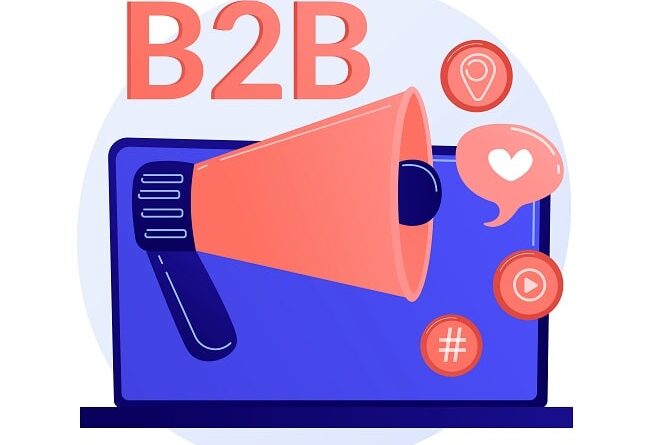Mastering B2B Strategies for Your Business Growth
Welcome to a world where digitization is driving change faster than we’ve ever seen before. With industries at every turn taken over by the digital wave, B2B strategies have moved from being an optional extra to an integral core of any thriving business model. Are you ready to delve deep and navigate this complex and exciting terrain?
In this article, we’re going to embark on a journey, a journey to master B2B strategies that can fuel your business growth. We’ll start at the base camp, familiarizing ourselves with the basics, before climbing to the heights to explore the advanced tactics that can propel your business into new dimensions of success. Let’s kickstart this adventure!
Understanding B2B
In the realm of commerce, Business-to-Business, commonly known as B2B, represents a critical distinction. Unlike the typical business-to-consumer (B2C) scenarios that most individuals are familiar with, B2B deals with the exchange of goods, services, or information between different companies, rather than a business and end user. This form of commercial exchange has its unique characteristics and intricacies, carefully shaped by a distinctive blend of factors.
To truly grasp the essence of B2B transactions, it’s paramount to understand its contrast with B2C markets. B2B markets operate on a different level, determined by dynamics such as large-scale transactions, longer sales cycles, and a more sophisticated decision-making process. This is in stark contrast to B2C markets, which are driven by individual customer preferences, immediate needs, and emotional responses.
The key differences between B2B and B2C can be seen in communication methods, sales processes, customer relationships, and decision-making strategies. By comprehending these differences, businesses are better positioned to tailor their products, services or information in ways that appeal to their intended market segments. For further insight, this Harvard Business Review article provides valuable perspective.
In conclusion, B2B is an integral element of our economy, and understanding the distinctions between B2B and B2C markets offers businesses the critical insights needed to strategize effectively and succeed in their respective markets.
Winning B2B Strategies
When it comes to business-to-business or B2B sales, the strategies take a definite swerve from those implemented in the business-to-consumer or B2C realm. This essential difference is mainly due to the lengthier sales cycles in B2B and the involvement of multiple decision-makers. It’s not uncommon to see months-long negotiations and umpteen meetings to seal a deal in B2B environments. Hence, forging winning strategies in B2B demands a special focus on elements like lead generation, customer acquisition, and client retention.
Lead generation in B2B often involves leveraging a healthy mix of inbound and outbound marketing strategies. Various tools like content marketing, search engine optimization, social media marketing, webinars, and more, form part of an effective B2B lead generation strategy. It’s about attracting potential customers to your services or products and eventually persuading them to provide their contact information.
The second component is customer acquisition. This not only includes building a relationship with your potential clients but also nurturing it to eventually convert them into actual customers. Whether it’s through email marketing, social media, events, or personal interactions, effective customer acquisition strategies are vital in the B2B world.
Lastly, client retention is equally pivotal in B2B scenarios. Since acquiring a new customer is often more costly than retaining an existing one, B2B businesses must put significant emphasis on developing strategies that keep their existing clients happy and loyal. Measures like customer service excellence, loyalty programs, and regular check-ins can greatly aid in enhancing client retention rates.
Leveraging Digital Tools for B2B
With the advent of digital technology, businesses are presented with a vast array of tools and platforms designed to streamline and optimize their business-to-business (B2B) operations. This applies across the board, whether you’re seeking to enhance your communication channels, fortify your customer relationship management, or even simplify your overall business processes. Leveraging these offerings doesn’t just equip you to match your competitors’ strides—it equips you to outpace them.
Search Engine Optimization (SEO) also plays a pivotal role in B2B success. By integrating SEO practices into your digital strategy, you make your brand more discoverable online, thus reaching a broader audience base. This can include optimizing your website’s content, using relevant keywords, and ensuring your backlink profile is robust. A great resource available for those who wish to learn more about SEO is Search Engine Land’s Guide on SEO.
Lastly, no discussion about digital business strategies would be complete without the mention of social media. Why? Because social networks are where your clients are. Platforms like LinkedIn, Twitter, Facebook, among others offer lucrative ways to target, engage, and convert B2B clients. Using these platforms, you can share relevant industry-related content, connect directly with potential stakeholders, and showcase your brand’s prowess for all your network to see.
Case Studies: B2B Strategies in Action
Learning from successful enterprises and their B2B strategies can hold great insights. The following paragraphs will delve into real-life case studies, revealing what has worked for others, what did not, and how they navigated the trajectory of their B2B strategies. Each case study is a treasure trove of practical wisdom that can guide your business and inform your strategies.
For instance, look at how tech giant, IBM, leveraged its partner network to widen its B2B reach. You can refer to this comprehensive IBM case studies collection which outlines key takeaway points. What can you take away from their B2B strategy? How can you incorporate those insights into your business?
Another interesting study is General Electric (GE), a game-changer in B2B operations. A deep-dive into the world of GE’s success, as described in this GE case study compilation, can reveal a lot about their methodical and strategy-driven approach to B2B operations.
The goal of presenting these case studies is not to copy successful businesses but to analyze the strategies they used, adapt them by adding our unique twists, and then incorporate them into our business models for increased success.
Conclusion: Sustaining Business Growth with B2B Strategies
The pursuit of mastering B2B strategies is a journey that extends beyond the pursuit of immediate success. It’s about building an enterprise that exhibits both sustainable growth and resilience. In an era where markets are becoming increasingly competitive, being proficient at creating and implementing effective B2B strategies is not just important, it’s essential. Understanding the mechanisms that drive the B2B marketplace can make a world of difference to the positioning of your business, and ultimately, its success in outpacing the competition.
In the realm of B2B, strategies need to be fluid and adaptable. Market trends change as rapidly as they are identified. As such, one of the biggest challenges lies in identifying strategies that are both current and effective. Much like solving an ever-changing puzzle, the key lies in staying updated with the latest industry knowledge while being ready to redefine your approach at any turn.
There’s no cut-and-dried way to secure success in this environment of constant change. However, the constant is that a thorough understanding of B2B strategies, combined with the ability to leverage them effectively, remains the foundation for positioning your business favourably in the market.
Take this journey of expertise development as a continuous learning experience. The more knowledge you gather about B2B markets, the better equipped you’ll be to map out successful strategies. The fruit of these efforts? Ultimately, putting your business ahead of the pack in this competitive commercial arena.
In essence, the appropriate execution of B2B strategies serves as an indispensable linchpin in expediting your business’s growth trajectory. The insights furnished in this article equip you with the strategic compass needed to traverse the complex terrain of B2B markets effectively. Remember, understanding the astute application of these tools is actionable intelligence you can use to foster an unshakeable stronghold in your market niche.
Towards this end, you are not only navigating the highs and lows of your B2B journey but also paving the way for sustainable success for your company. Always keep in mind that the roadmap to prosperity in B2B strategies isn’t merely about transactions; it’s about creating lasting relationships with your stakeholders, driven by value, trust, and mutual benefit. When applied skillfully, the knowledge presented in this piece can serve as your strong ally in this journey.
More about Marketing :
Marketing Mastery: Strategies for Business Success, click here
B2B Marketing Essentials: A Concise Guide, click here
B2B Marketing Tactics: Boosting Your Business, click here


